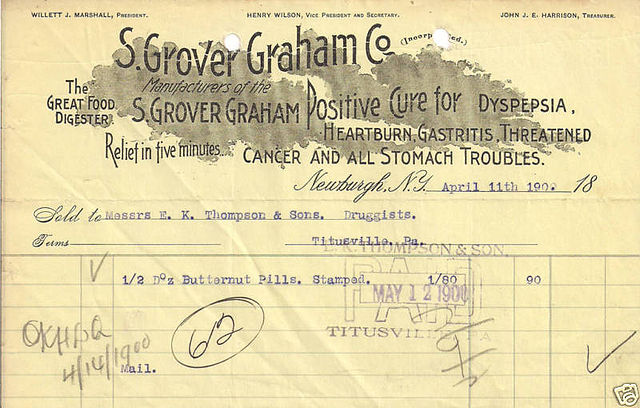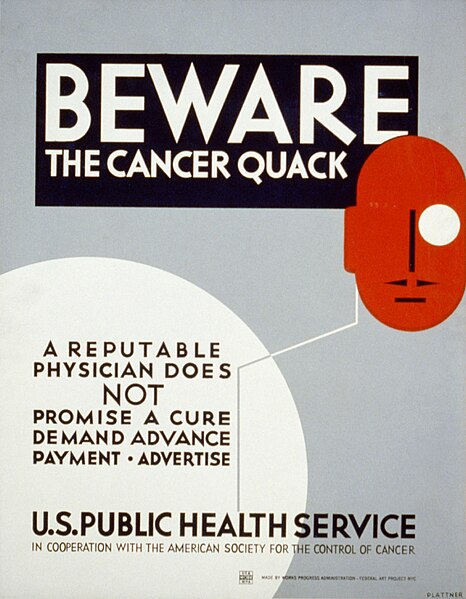A patent medicine is a non-prescription medicine or medicinal preparation that is typically protected and advertised by a trademark and trade name, and claimed to be effective against minor disorders and symptoms, as opposed to a prescription drug that could be obtained only through a pharmacist, usually with a doctor's prescription, and whose composition was openly disclosed. Many over-the-counter medicines were once ethical drugs obtainable only by prescription, and thus are not patent medicines.
Sick Made Well, Weak Made Strong, Elixir of Life, etc. Typical ad for patent medicine.
Kilmer's Swamp Root
Receipt from 1900 for a patent medicine claiming a "Positive Cure for Dyspepsia, Heartburn, Gastritis, Threatened Cancer and all Stomach Troubles" with "Relief in five minutes"
Quackery, often synonymous with health fraud, is the promotion of fraudulent or ignorant medical practices. A quack is a "fraudulent or ignorant pretender to medical skill" or "a person who pretends, professionally or publicly, to have skill, knowledge, qualification or credentials they do not possess; a charlatan or snake oil salesman". The term quack is a clipped form of the archaic term quacksalver, from Dutch: kwakzalver a "hawker of salve". In the Middle Ages the term quack meant "shouting". The quacksalvers sold their wares at markets by shouting to gain attention.
WPA poster, 1936–38
William Hogarth's The Inspection, the third canvas in his Marriage à-la-mode (The Visit to the Quack Doctor)
Pietro Longhi's The Charlatan (1757)
The Surgeon by Jan Sanders van Hemessen (1555)







